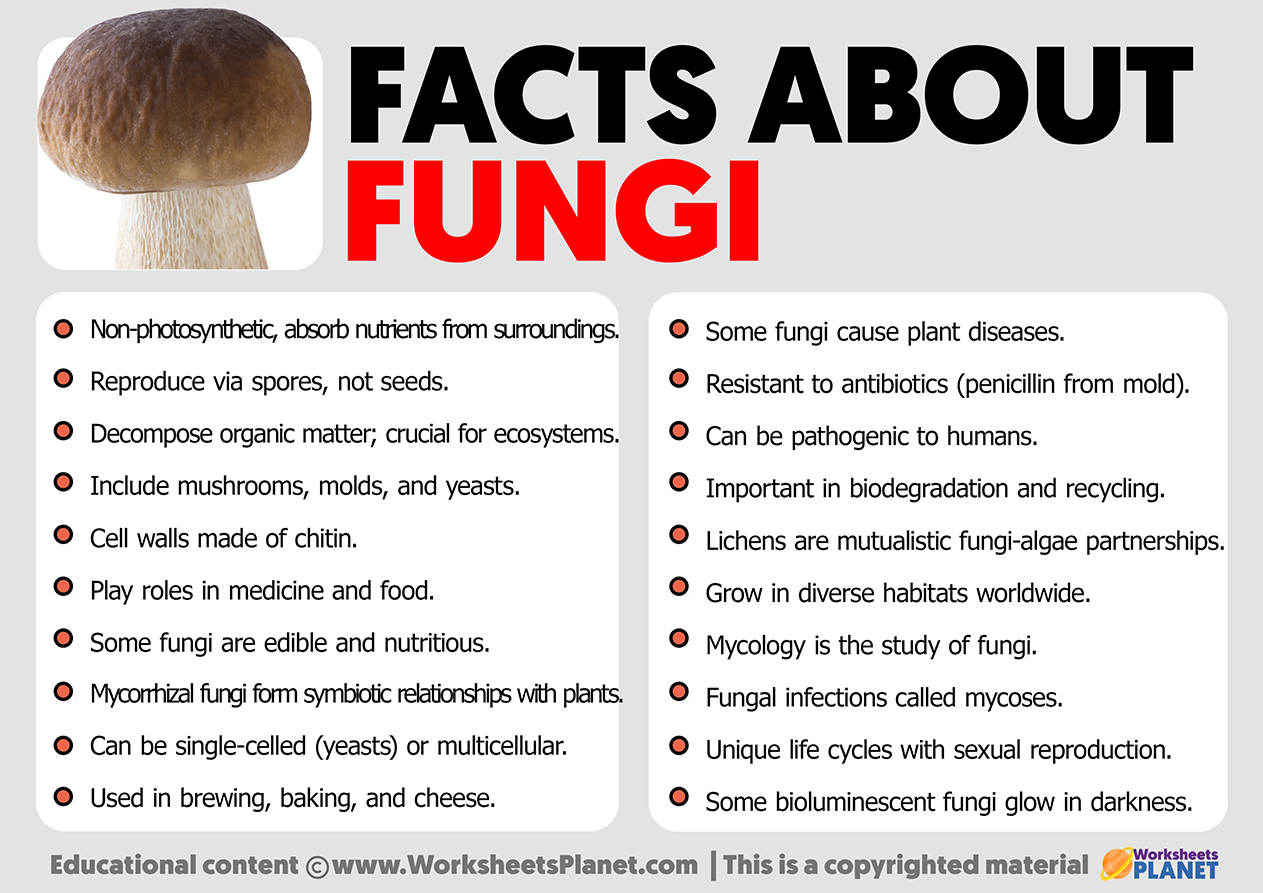Fungi are a diverse group of organisms that belong to their own kingdom, distinct from plants, animals, and bacteria. They are primarily characterized by their cell walls made of chitin and their mode of obtaining nutrients.
Fungi are typically non-photosynthetic and obtain their energy by breaking down organic matter through the process of decomposition.
They include familiar organisms like mushrooms, yeasts, and molds, and play critical roles in ecosystems as decomposers, symbionts, and even in food production and medicine.

Here you have 20 interestings facts about Fungi
- Non-photosynthetic, absorb nutrients from surroundings.
- Reproduce via spores, not seeds.
- Decompose organic matter; crucial for ecosystems.
- Include mushrooms, molds, and yeasts.
- Cell walls made of chitin.
- Play roles in medicine and food.
- Some fungi are edible and nutritious.
- Mycorrhizal fungi form symbiotic relationships with plants.
- Can be single-celled (yeasts) or multicellular.
- Used in brewing, baking, and cheese.
- Some fungi cause plant diseases.
- Resistant to antibiotics (penicillin from mold).
- Can be pathogenic to humans.
- Important in biodegradation and recycling.
- Lichens are mutualistic fungi-algae partnerships.
- Grow in diverse habitats worldwide.
- Mycology is the study of fungi.
- Fungal infections called mycoses.
- Unique life cycles with sexual reproduction.
- Some bioluminescent fungi glow in darkness.

